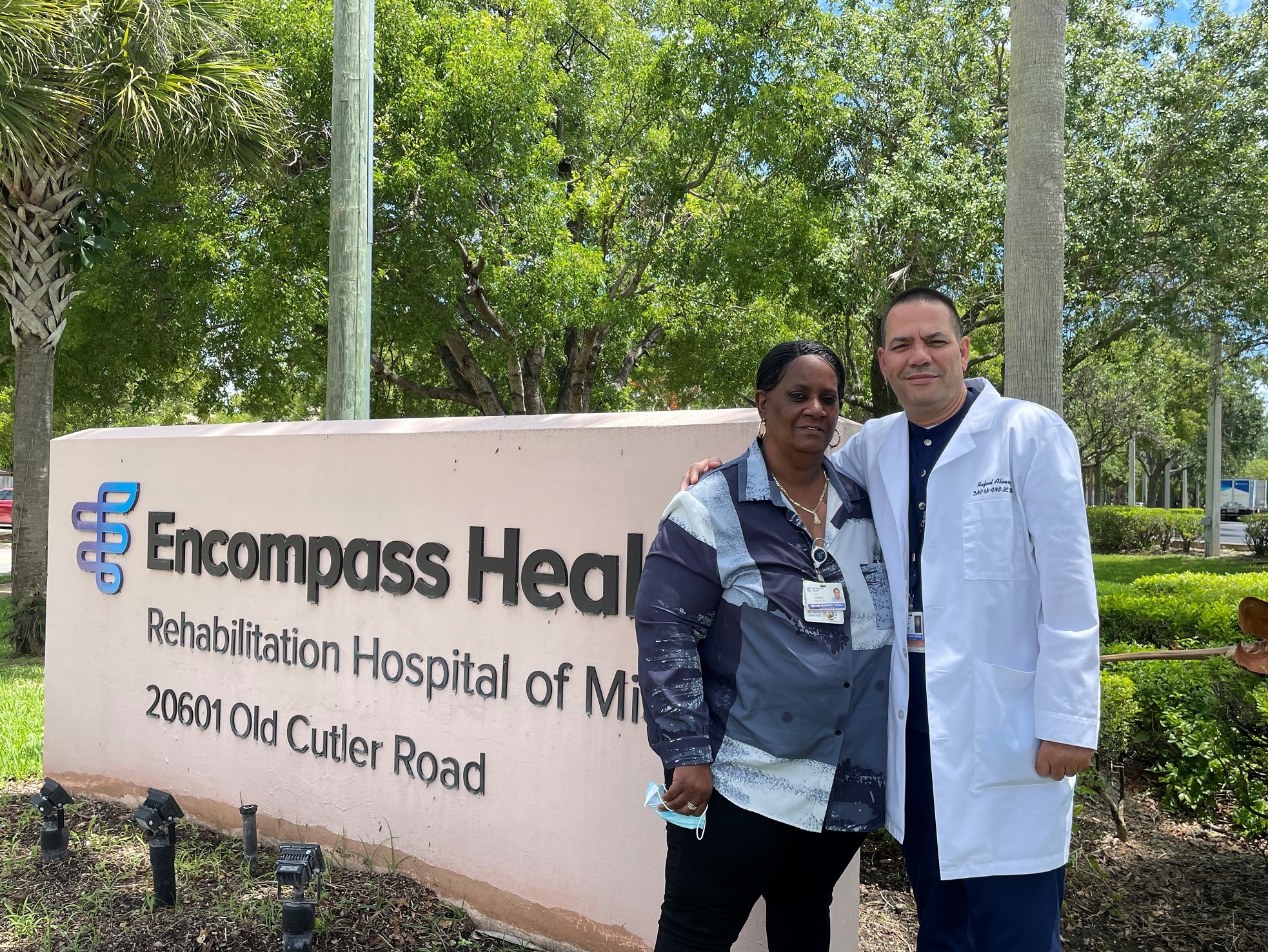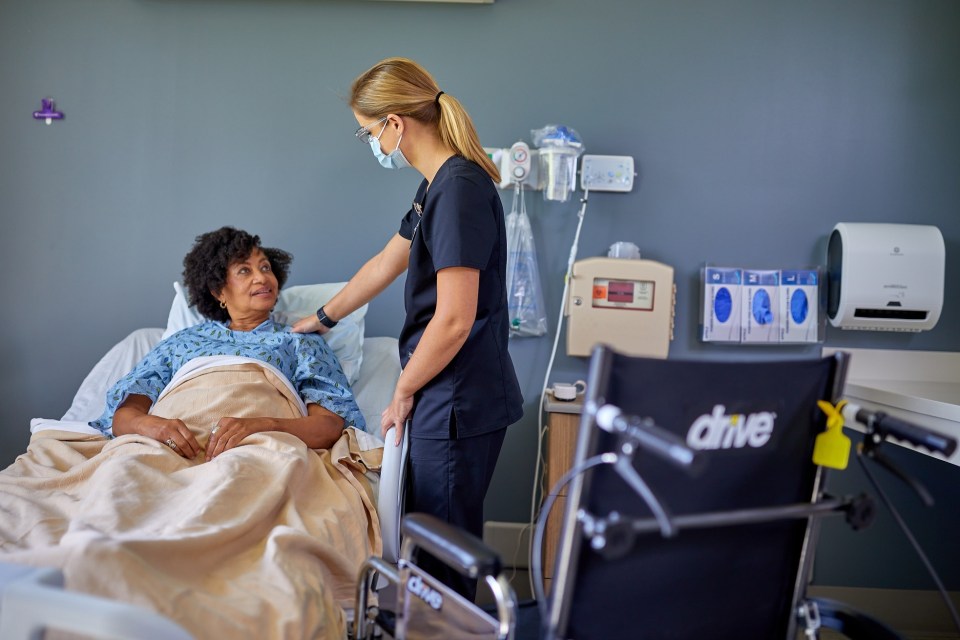Patients at Encompass Health hospitals interact with medical professionals across a wide spectrum of expertise including doctors, nurses and therapists. However, it is often the nursing assistants such as rehabilitation nursing techs (RNTs) who have the most face-to-face time with patients on any given day. For longtime RNT Carla Parrish at Encompass Health Rehabilitation Hospital of Miami, it’s a rewarding career that she’s cherished for more than 30 years. “I enjoy seeing patients get to go home and enjoy their families and the life they loved before illness or injury. It is a very special job,” she said.
The Role of Nursing Assistants
Patients impacted positively by a nursing assistant or RNT know just how much it helps to have empathetic caregivers by their side during inpatient rehabilitation. If a patient isn’t feeling well or voices a concern, the RNT is often the first caregiver to know. They monitor patients’ well-being and communicate potential risks and changes in patients’ conditions to the rehabilitation nurses.
Liz Squires, a regional chief nursing officer at Encompass Health, emphasized the importance of the relationship between RNTs and patients as it relates to patient success and safety. “These caregivers provide comfort to our patients by assisting them in meeting their basic needs,” she said. This includes daily activities such as dressing, grooming, bathing, eating, toileting and moving around. “RNTs typically spend the most time with the patient out of all the disciplines, so they are key players in fall and wound prevention.”
Patients participate in at least three hours of therapy each day, and it’s important that they arrive to all planned sessions and activities on time and ready to give it their best effort. RNTs ensure patients are prepared and keep to a schedule.
Serving Patients and Families
Parrish and her colleagues do everything they can to help patients get back to the things and people that matter most. Often, RNTs speak with patients’ families so a support system is in place when the patient returns home. “We always try to do what’s right even when it’s not easy to have difficult conversations with patients and families,” she said.
According to Parrish, it’s all worth it in the end. “The most rewarding aspect of my job is when I see people gain their independence and ability to function and participate in activities with their families.”

Focusing on Growth
Encompass Health understands the value of RNTs in the post-acute care setting and provides a clear career growth path for those who want to become leaders among their colleagues. RNTs can participate in a clinical ladder that offers four levels of expertise. As RNTs demonstrate competency in additional responsibilities, they receive pay increases and recognition.
Parrish is a shining example of the benefits of the clinical ladder. In addition to caring for patients, she’s taken on a mentoring and teaching role as a preceptor for new nursing assistants. “This has helped me grow as a leader with RNTs; I love teaching new employees!”
The content of this site is for informational purposes only and should not be taken as professional medical advice. Always seek the advice of your physician or other qualified healthcare provider with any questions you may have regarding any medical conditions or treatments.



